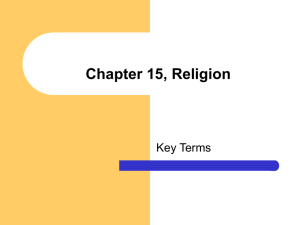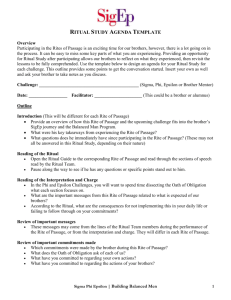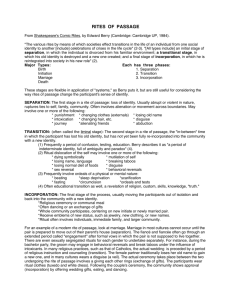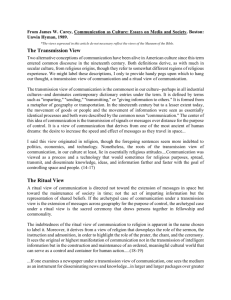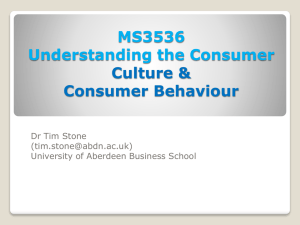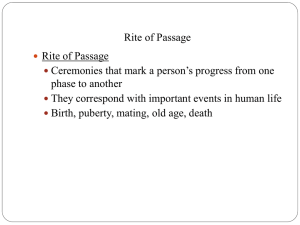Standards Board Training Agenda
advertisement
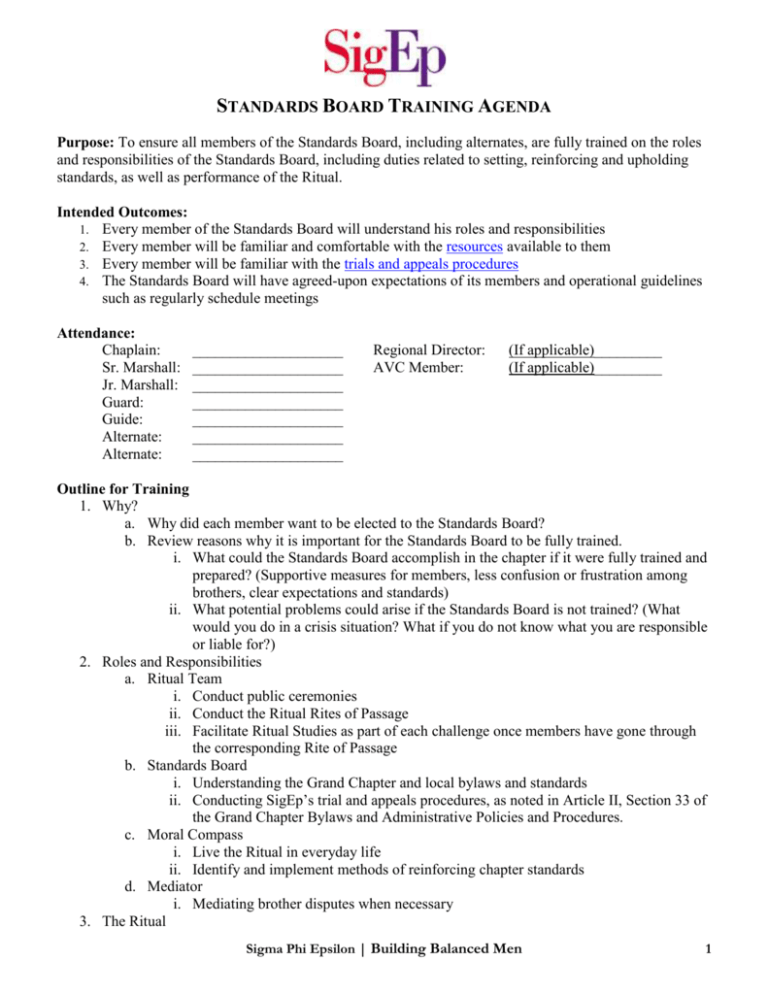
STANDARDS BOARD TRAINING AGENDA Purpose: To ensure all members of the Standards Board, including alternates, are fully trained on the roles and responsibilities of the Standards Board, including duties related to setting, reinforcing and upholding standards, as well as performance of the Ritual. Intended Outcomes: 1. Every member of the Standards Board will understand his roles and responsibilities 2. Every member will be familiar and comfortable with the resources available to them 3. Every member will be familiar with the trials and appeals procedures 4. The Standards Board will have agreed-upon expectations of its members and operational guidelines such as regularly schedule meetings Attendance: Chaplain: Sr. Marshall: Jr. Marshall: Guard: Guide: Alternate: Alternate: ____________________ ____________________ ____________________ ____________________ ____________________ ____________________ ____________________ Regional Director: AVC Member: (If applicable)_________ (If applicable)_________ Outline for Training 1. Why? a. Why did each member want to be elected to the Standards Board? b. Review reasons why it is important for the Standards Board to be fully trained. i. What could the Standards Board accomplish in the chapter if it were fully trained and prepared? (Supportive measures for members, less confusion or frustration among brothers, clear expectations and standards) ii. What potential problems could arise if the Standards Board is not trained? (What would you do in a crisis situation? What if you do not know what you are responsible or liable for?) 2. Roles and Responsibilities a. Ritual Team i. Conduct public ceremonies ii. Conduct the Ritual Rites of Passage iii. Facilitate Ritual Studies as part of each challenge once members have gone through the corresponding Rite of Passage b. Standards Board i. Understanding the Grand Chapter and local bylaws and standards ii. Conducting SigEp’s trial and appeals procedures, as noted in Article II, Section 33 of the Grand Chapter Bylaws and Administrative Policies and Procedures. c. Moral Compass i. Live the Ritual in everyday life ii. Identify and implement methods of reinforcing chapter standards d. Mediator i. Mediating brother disputes when necessary 3. The Ritual Sigma Phi Epsilon | Building Balanced Men 1 a. Using the 2015 Ritual books, follow the instructions and practice performing the Epsilon Rite of Passage. b. If the Chapter President and Vice President of Programming are unable to attend this activity, have the alternates fill in for their roles. They should be trained and practice at some point before conducting the Rites of Passage in real time. c. Following Ritual practice, bring the Standards Board together to design a Ritual Study for each Rite of Passage using the Ritual Study Agenda Template. 4. Chapter Standards a. Review the four areas of chapter standards and identify the chapter’s standards in each area. i. Finance ii. Academics iii. Behavior iv. Development b. Compare this list to that of the Grand Chapter and make sure no local standards fall below the Grand Chapter’s minimum. c. Review and Revise the chapter’s membership agreement to ensure it is reflective of the standards you just discussed. If the chapter does not have a membership agreement, use the Sample Membership Agreement. i. Do you address all four areas of chapter standards? ii. Are there areas the Standards Board thinks should be raised? iii. Are there areas the Standards Board thinks need to be clarified? 5. Next Steps a. Schedule a regularly recurring meeting b. Develop a meeting agenda c. Develop expectations of one another to follow throughout the year. d. Identify any priorities to address throughout the year (ie. Raising the academic minimum for the chapter, implementing a membership agreement, clarifying a certain standard within the membership agreement Follow Up: The Chaplain should take responsibility to send a follow up email out to everyone on the Standards Board, as well as the Chaplain Mentor, if applicable, Chapter Counselor and other key volunteers. Include key takeaways from the group and a record of your next steps and expectations of one another to ensure there is no confusion and everyone remembers what you discussed. Sigma Phi Epsilon | Building Balanced Men 2

